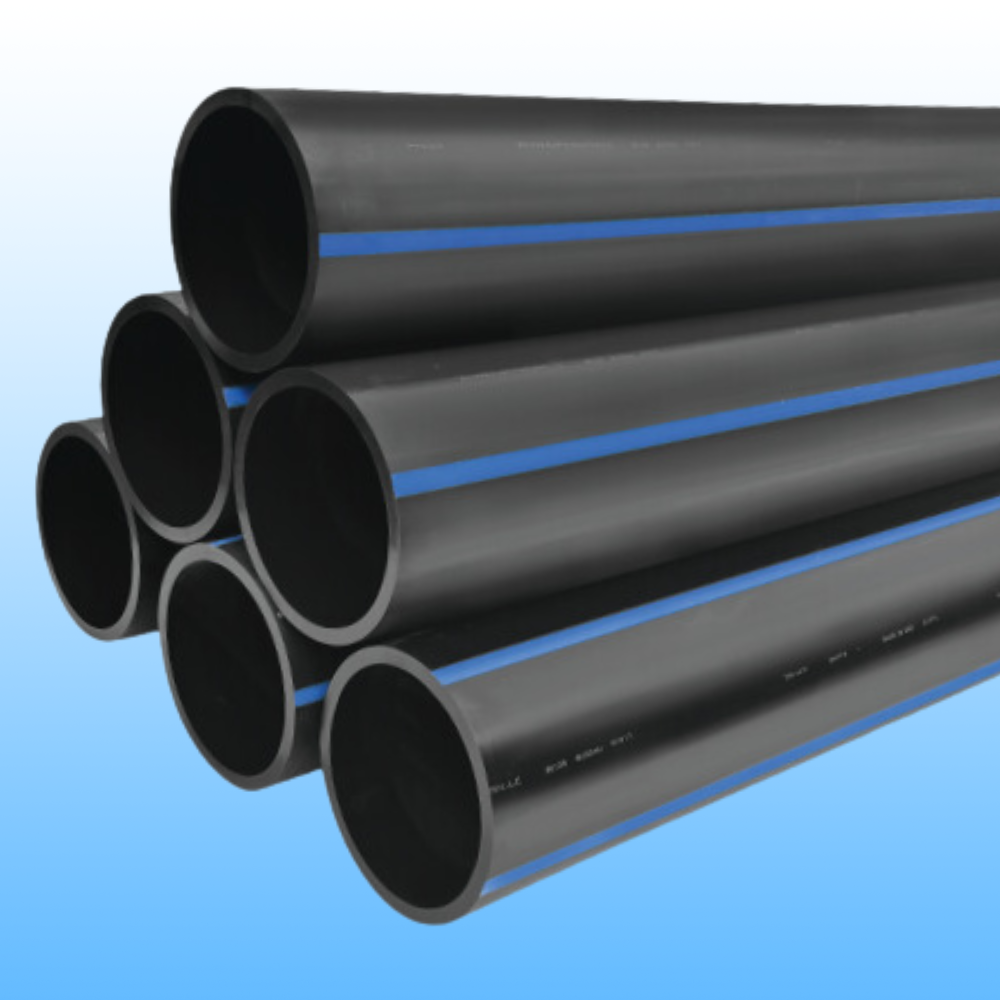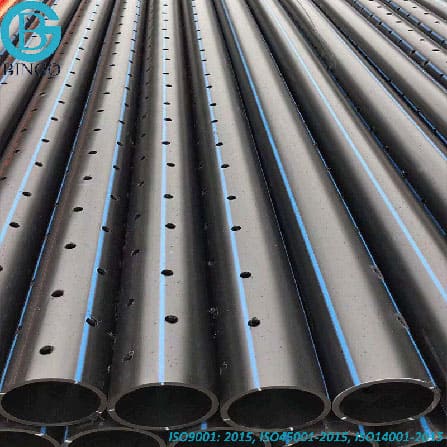A Comprehensive Guide to the Various Uses of HDPE Pipeline in Building and Sector
HDPE pipes have actually become a critical component in modern-day building and construction and commercial applications. Their special properties, such as resistance to deterioration and lightweight design, make them ideal for a wide variety of usages. From water supply systems to farming irrigation, HDPE pipes use remedies that enhance efficiency and sustainability. Recognizing their diverse applications is crucial for specialists wanting to enhance infrastructure. What details advantages do these pipes bring to each market?
Water and Circulation Solutions
Water and circulation systems are critical components of city facilities, commonly relying upon high-density polyethylene (HDPE) pipes for their resilience and efficiency. These systems transport drinkable water from therapy centers to consumers, making sure ease of access and safety. HDPE pipelines are favored for their resistance to deterioration, chemicals, and extreme temperature levels, which improves their longevity and reduces upkeep expenses. Additionally, their lightweight nature permits for simpler installation and transportation, making them excellent for numerous metropolitan and rural applications.
The versatility of HDPE pipes allows them to be installed in tight rooms and around barriers, lessening the requirement for comprehensive excavation (Pipe Supplier American Plastics Midland). Additionally, their smooth indoor surface area minimizes friction losses, boosting water flow rates. As cities proceed to expand, the need for trusted supply of water systems enhances, placing HDPE pipes as a lasting solution for modern facilities jobs. Their tested record makes them a recommended selection among designers and metropolitan coordinators alike
Wastewater Monitoring and Therapy
Efficient wastewater management and therapy are vital for preserving public health and environmental top quality. HDPE pipelines play a crucial role in this process because of their longevity, resistance to corrosion, and ability to withstand extreme chemicals. These pipelines are generally made use of in different applications, including sewer system, stormwater water drainage, and wastewater therapy facilities. Their light-weight nature assists in simpler installation and transportation, lowering labor costs and time.
Furthermore, HDPE pipes have a smooth indoor surface area that lessens rubbing loss, promoting effective circulation prices. They are also much less vulnerable to leaks and failings contrasted to standard products, making sure that contaminants are had successfully. Furthermore, their versatility enables adaptability in numerous soil problems, making them appropriate for varied ecological settings. As sectors progressively focus on lasting techniques, making use of HDPE pipes in wastewater management systems aligns with objectives for minimizing environmental effect and enhancing resource healing.
Agricultural Irrigation Solutions
In agricultural settings, effective irrigation services are essential for enhancing crop yields and handling water resources. HDPE (High-Density Polyethylene) pipelines play a crucial role in contemporary watering systems as a hvac copper fittings result of their sturdiness, flexibility, and resistance to rust. Their ability to stand up to high stress makes them suitable for both surface and subsurface watering applications, making certain consistent water circulation across areas.
Farmers can use HDPE pipelines in drip irrigation systems, which provide water directly to plant roots, minimizing wastage and advertising healthy development. In addition, these pipes are lightweight and very easy to set up, reducing labor expenses and installment time. Their lengthy life expectancy and reduced maintenance requirements even more enhance their charm in farming methods.
Moreover, HDPE pipelines are eco-friendly, as they can be reused and do not seep harmful chemicals right into the soil. This makes them a sustainable selection for farmers intending to adopt eco-friendly agricultural techniques while taking full advantage of productivity.
Industrial Applications and Processes
Adaptability is a trademark of HDPE pipelines, making them important in various industrial applications and processes. These pipes are extensively made use of in chemical processing markets because of their exceptional resistance to a vast array of destructive substances. HDPE's light-weight nature, integrated with high tensile strength, allows for very easy setup and lasting performance in demanding atmospheres.
In the oil and gas sector, HDPE pipelines play an essential role in transporting hydrocarbons and gases, many thanks to their toughness and versatility - hdpe pipe in stock Midland TX. In addition, they are utilized in mining operations for the transport of slurry and site link various other products, where standard piping systems might fall short
HDPE pipes are significantly made use of in producing centers for water supply lines and wastewater administration. Their ability to stand up to severe temperatures and pressures makes them suitable for a variety of industrial processes. In general, HDPE pipes add greatly to effectiveness and security throughout diverse industrial applications.
Stormwater Management and Water Drainage Systems
Stormwater administration and drainage systems are critical components in urban framework, created to manage excess rains and minimize flooding dangers. High-density polyethylene (HDPE) pipes are significantly made use of in these systems as a result of their durability, versatility, and resistance to deterioration. These pipes efficiently transport stormwater far from booming locations, decreasing surface runoff and protecting against waterlogging.
HDPE's lightweight nature helps with easier setup, lowering labor expenses and building and construction time. In addition, its resistance to chemicals and ecological stressors warranties longevity and integrity in various climates. In enhancement to traditional drain applications, HDPE pipes are likewise used in cutting-edge services such as environment-friendly facilities, which consists of rain gardens and absorptive pavements.

Frequently Asked Questions
How Does HDPE Pipe Contrast to PVC Pipeline in Cost?
In basic, HDPE pipe has a tendency to be a lot more costly than PVC pipeline because of its boosted toughness and adaptability. However, long-term cost considerations, such as upkeep and life-span, might prefer HDPE in particular applications.

What Is the Life-span of HDPE Water Lines Under Varying Conditions?
HDPE pipelines typically have a life-span of 50 to 100 years, relying on environmental problems, installation methods, and use. Variables such as temperature level, male to 1 2 female reducer dirt type, and direct exposure to chemicals can significantly influence their resilience.
Can HDPE Pipes Be Recycled After Use?
Yes, HDPE pipes can be recycled after usage. The recycling procedure includes melting down the material, enabling it to be repurposed right into new items, consequently promoting sustainability and decreasing ecological impact connected with plastic waste.
Are There Any Type Of Specific Installation Obstacles With HDPE Pipes?
Installment obstacles with HDPE pipelines include proper jointing strategies, guaranteeing appropriate trench problems, and handling thermal growth. Additionally, experienced labor is called for to deal with specific equipment, which can complicate the setup procedure in various environments.

What Accreditations Should I Search For When Buying HDPE Water Lines?
When buying HDPE pipelines, one ought to seek accreditations such as ASTM, AASHTO, and ISO, which verify top quality and conformity with sector standards, assuring durability and performance in numerous applications. - Pipe Manufacturing Midland TX